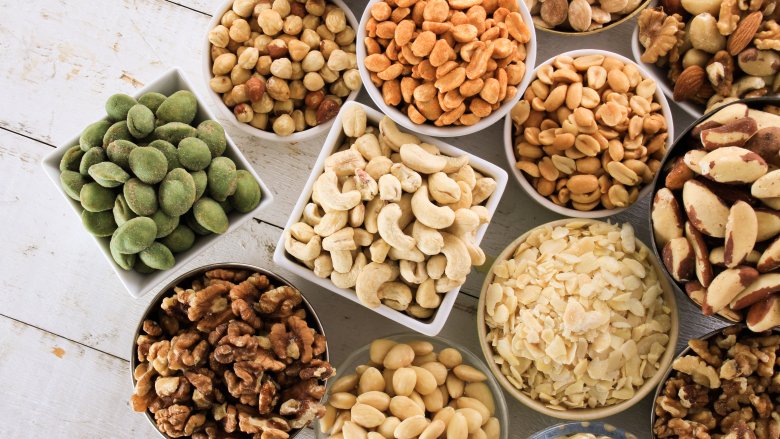Why Getting Natural Probiotics from Food is Better
Which gives you more benefits, getting your natural probiotics from fermented foods or from a capsule of freeze-dried bacteria?
Well, let’s just talk pleasure for a moment. Which would give you the most pleasure, real food that’s flavor-enhanced through fermentation, or a capsule you gulp down with a swig of water? No contest, right?
Now let’s talk nutrition. Which do you think gives your body more complete nutrition, a whole food like cucumbers or cabbage that’s fermented and contains, besides the nutrients in the food itself, billions of health-giving probiotic microbes, or a capsule that contains a powdered and dried form of some of the same microbes?
And don’t forget the effectiveness of the microbes themselves when they gallop down your gullet along with fermented whole foods. Beneficial gut bacteria are already alive and working in wildbrine products like our popular cabbage family foods: kimchi and sauerkraut. With probiotic supplements, some bacteria are lost in the freeze-drying process, some die off during their stay on a store shelf, and some are lost when they wake up in the harsh environment of stomach acid -- all of which can lessen the product’s effectiveness.
What are the Advantages of the Natural Probiotics in Food?
Fermented foods have one major advantage: Many of the bacteria are sequestered within the foodstuffs, protected from that initial harsh stomach environment. The soluble fiber in the food, called prebiotics, are resistant to digestion both from stomach acid and the bacteria found in the small intestine. The gut bacteria in the large intestine, the last part of the alimentary journey, are not only capable of digesting the prebiotic elements in the food, they thrive on them!
The result is that your gut bacteria dismantle the prebiotics into their constituent nutrients, some of which they use to reproduce. This replaces older bacterial cells in your gut microbiome and replenishes those that are eliminated naturally each day. The new arrivals keep the colony youthful, healthy, and functioning at peak performance. Also, to your great benefit, some of the nutrients released by probiotic dismantling of the food pass through your intestinal wall to feed you.
Fermented Foods: The Tradition
When you get your natural probiotics from food, you’re partaking in millennia-long traditions of human cultures from all around the world. Just 100 years ago, before electrical refrigeration, almost everyone prolonged the life of food by using an ice box—literally, an insulated chest that held a block of ice in the top compartment. As it melted, ice water flowed around the middle compartment where food was stored, and collected in a bottom compartment that could be easily pulled out and emptied. They also canned and dried food. And most importantly, they fermented food.
Every general store had a pickle barrel. Farmers from Korea to Germany fermented cabbage and enjoyed their kimchi and sauerkraut all winter long. People fermented meat and made it into various kinds of sausage and dried, smoked, or salted products. They preserved milk by turning it into cheese or kefir and transformed grapes and other fruits into wine and grains into beer. Before refrigeration, people ate a lot of fermented foods, which supported their gut microbiomes and kept them healthy.
Today companies like wildbrine continue that tradition; only today, science has revealed for us the biologically crucial microbial players that do the digestive work and the many health benefits they provide.

The Phytic Acid Action
We know now, for instance, that some foods like nuts, seeds and legumes contain a substance called phytic acid that reduces the body’s ability to absorb important minerals, especially iron. But when those same foods are fermented or soaked, enzymes in these processes disable the phytic acid's action, allowing better absorption of iron. As you undoubtedly know, iron deficiency causes anemia that prevents the body from creating enough red blood cells whose hemoglobin carries oxygen to all the cells of the body. At the center of each hemoglobin molecule is an atom of iron. Without enough iron, your cells are actually gasping for air.
In a recent study on the health effects of fermented foods, scientists at the University of California at Davis reported that “the benefits of fermented foods are likely greater than the sum of their individual microbial, nutritive, or bioactive components.” In other words, when the probiotic microbes are alive and working within a food, a synergy happens that creates more benefits than the sum of the food, probiotics, and human digestive system benefits alone would predict.
They believe current research shows “the relevance, and potentially the necessity, of certain fermented foods in the human diet and justification for inclusion into national dietary guidelines.”
At wildbrine, we’re already there. Probiotic supplements are all well and good, but they don’t come close to the delicious and healthy business of getting real, natural probiotics from food. We’ve made it easy and tasty for you to reap the very real rewards of good gut health.
About the Author: Sonoma County resident Jeff Cox is the author of 24 books, including The Essential Book of Fermentation (Avery, 2013)